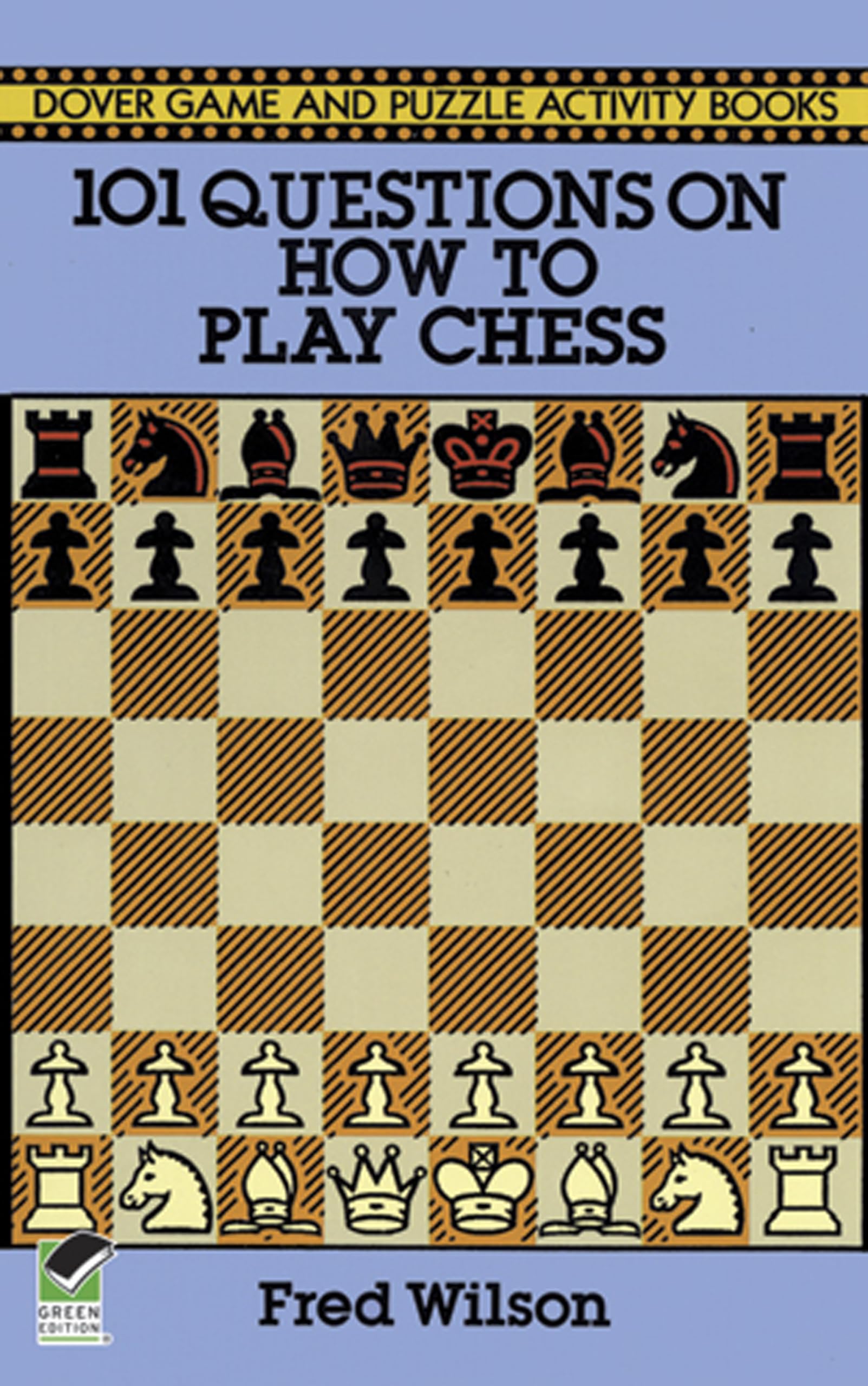

Wilson-101 Questions On How To Play Ches
N**A
Satusfactiry
Being a tiny book an extra flap should have been wrapped over it before inserting into the dispatch envelop to protect from twisting.
M**K
Superb book for beginners
An ideal first book on chess. Along with board setup, rules, and piece movement, the author also introduces core tactics such as pins and forks; demonstrates common beginners' mistakes; gets you up to speed on chess notation, both "algebraic" (the modern notation system) and "descriptive" (the prior system used until around 1980 or so); and even walks you through a rook-and-pawn endgame — all in less than 80 pages! I really liked the approach, too: no "rule dumps" or anything like that here. Instead, everything is introduced gradually and incrementally by example, with LOTS of diagrams throughout. At the end is a solid list of books for further reading, each with helpful comments indicating what skill level the book is best suited for and whether it uses algebraic or descriptive notation.If you're looking to get started playing chess quickly, this is a hard book to beat. Although you can easily read through it in an afternoon, I suggest going along with the author's recommendation of setting up a board (or a chess app) and stepping through the moves he describes. It will take you a little longer to get through the book — a few days at most — but you'll begin (emphasis on the word "begin") seeing the game with more of an eye toward tactics and strategy.
G**.
101 Questions on How to Play Chess
livre de poche, un vrais ami , un peut oldy au niveau qualité d’imprimémais à ce prix c'est riença part des bases avec des exorcises..
H**F
This is one of the books that should be in ...
This is one of the books that should be in every chess player's library. I purchased the books for high school students that I am tutoring in chess. They are thrilled about having the book, because it is making learning the game much easier
D**G
Simple and effective for beginners, but out of date and awkwardly organized
I bought this book for one reason: To allow my friends to borrow it. For this function, 101 Questions on How to Play Chess is near perfect - it's dirt cheap, it teaches many of the basics of chess in digestible order and form, and the cover generally looks very beginner-friendly. On the downside, the organization isn't great for re-reads, and the 1994 published book is missing a lot of helpful information about online play, chess engines, and more.Instead of chapters, the information is presented in Q&A format, which makes content harder to find if you know what you're looking for, so it's clearly meant to be a read-once book, though there is an index at the end. The content itself is organized well at the beginning; it teaches algebraic notation from the very beginning (with descriptive notation near the end) before moving on to piece movements. Some of the Questions are a bit contrived sounding (Q: is there another unusual way I can use a pawn to make a capture? A. en passant) in order to accomplish this, and Checkmate is notated ++ (usually double-check) instead of #.From there, it's a hodgepodge of basic endgame checkmates, basic tactics, and piece optimization pointers, with the concepts of en passant and castling mixed in. Then comes some terminology, such as "sacrificing the exchange" and backward/isolated pawns, fianchettoes. This is followed by some opening advice, but thankfully no complex lines. After the opening is some middlegame and then endgame advice. Then suddenly the book teaches the Lucena and Philidor Rook endgames!After the advice section is the etiquette and miscellaneous rules section, including touch-move and blitz times. Then a full game is analyzed, followed by a descriptive notation section. Finally, the book ends with some "where to go from here" and "why play chess" questions, followed by a potentially very helpful Further Reading list.Overall, 101 Questions on How to Play Chess is far from comprehensive, and the questions seem a bit contrived at times. But it's not a boring read and it does touch on everything a player needs to know to get started on the physical game. It leaves out chess engines and general chess technology as well as online play, as it was published before the time. I decided to dock some points for that because I am assessing its usefulness of the modern reader. All things considered, I'd give this book a B-.
D**Z
Three Stars
The person I bought this for said it was a beginners guide, not for those who already kinda know
Trustpilot
1 month ago
1 day ago